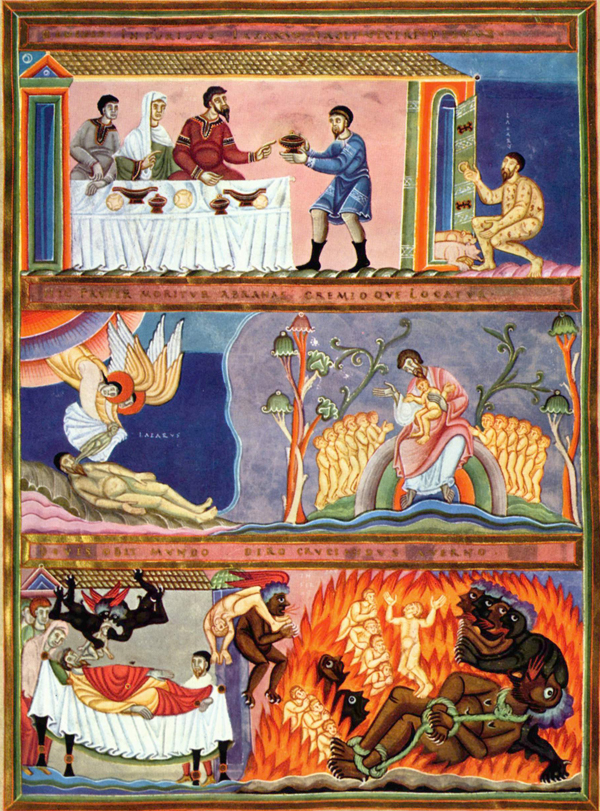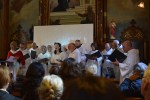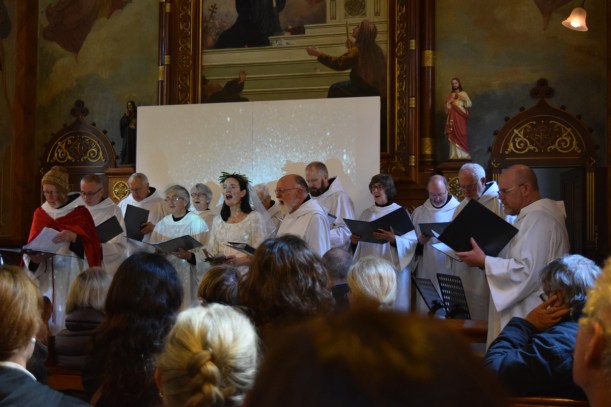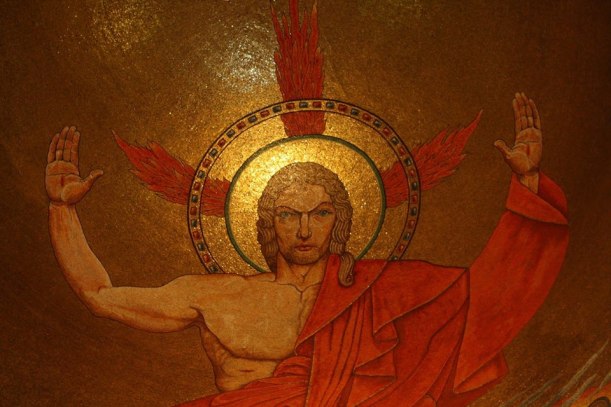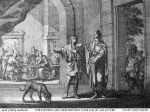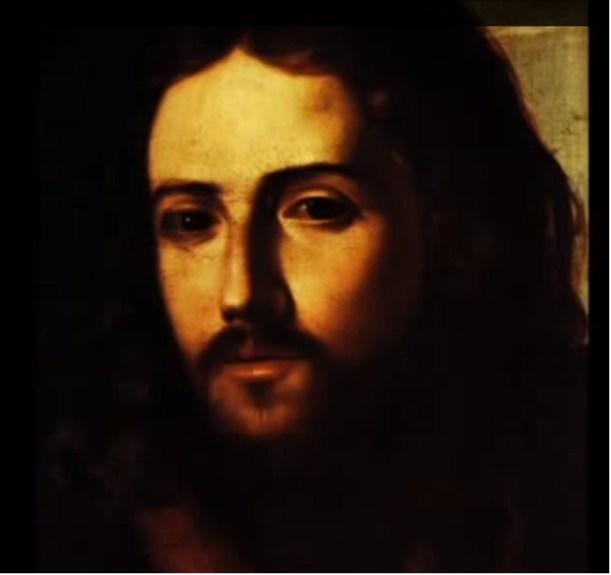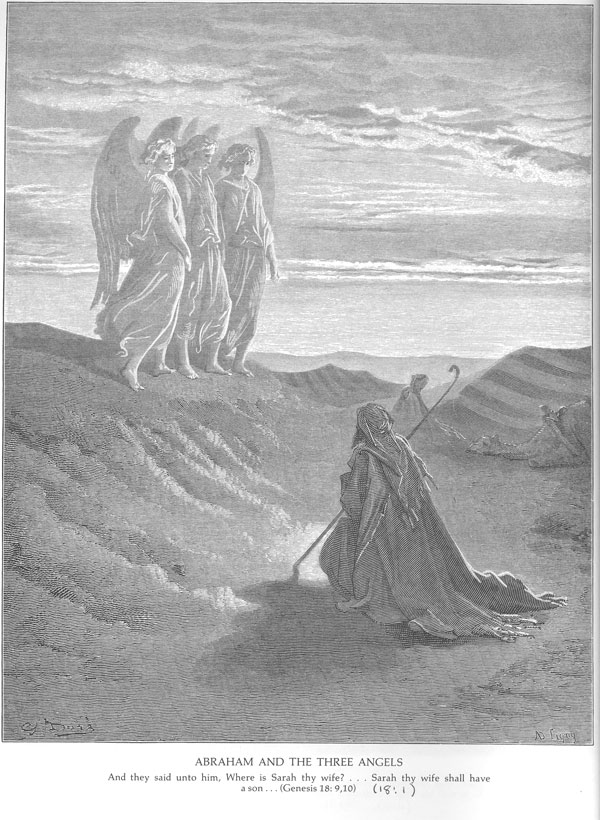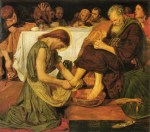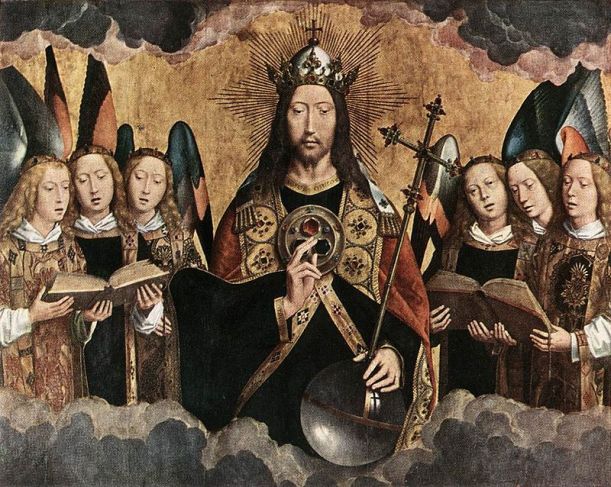
Christ surrounded by Musician Angels, Hans Memling (c.1480), Royal Museum of Fine Arts, Antwerp, Belgium.
I have a friend, Will, who, as an agnostic, is a great gift to me. At this stage of his life Will is not one iota interested in God; however, talking to him provides me with an opportunity to understand how atheists and agnostics think. So last weekend, I asked him about his current view of reality: to what extent did it include the possibility of God existing?
He answered that as it was impossible to prove God exists, my question was meaningless.
Setting aside whether his assertion is correct (I think it isn’t – but will explain that in another post, or you can read this book), I asked him if he had ever tried the experiential approach and bothered to get his answer straight from the horse’s mouth, so to speak, and ask God if He exists.
No, Will replied. For if he asks God whether He exists, he is introducing observer bias into the equation, since the question assumes that there is a God to ask whether he exists. What Will is referring to is a form of confirmation bias, which Wikipedia describes as a “tendency to search for, interpret, favour, and recall information in a way that confirms one’s pre-existing beliefs or hypotheses, while giving disproportionately less consideration to alternative possibilities.”
That’s not really the case, I replied. You see, the question of whether God exists is too important not to address. It’s about ultimate truth, and what we believe about ultimate truth becomes the frame of reference for everything else in our lives. Take, for example, an atheist like Friedrich Nietzsche who said this: ‘All superior men who were irresistibly drawn to throw off the yoke of any kind of morality and to frame new laws had, if they were not actually mad, no alternative but to make themselves or pretend to be mad’. The last eleven years of his life were a descent into madness. (What a surprise.) Contrast this with someone like St Thérèse of Lisieux: ‘Miss no single opportunity of making some small sacrifice, here by a smiling look, there by a kindly word; always doing the smallest right and doing it all for love.’ Which one of these people do you think had the better understanding of the truth?
So, I said to Will, regarding the question of whether God exists, we have these possibilities:
- God does not exist and eo ipso does not want to establish a relationship with us.
- God exists and does not want to establish a relationship with us.
- God exists and wants to establish a relationship with us.
But what you are saying, Will, is that there are only two options regarding these possibilities:
- God does not exist and I can ask him if he exists until I am blue in the face, but because he doesn’t exist he won’t answer me.
- God may exist, but I can’t ask him whether he exists, because asking the question a priori introduces confirmation bias (according to Will, anyway).
This seems an extraordinarily poor strategy in the game of life. Because if God exists, I have left myself no apparent way of discovering Him! In fact, the way Will has designed his schema is itself the most perfect example of a confirmation bias for the negative proposition! Hypocrisy, anyone? Accusing others of confirmation bias while exemplifying it oneself?
Anyway, I disagree that asking a question of a hypothetical God introduces confirmation bias. There are various ways we can ask a question to introduce confirmation bias or otherwise.
For example, one could have negative confirmation bias if one worded the question this way:
“Hypothetical God, to determine if you exist (and I am reasonably sure you don’t), I will throw this ten dollar note into the air, and if you sweep it up into the air like Elijah’s chariot, I will believe you exist, but if it falls back to earth, then I will continue to believe you are non-existent.”
… or one could have positive confirmation bias if one phrased one’s question using a scenario which has every likelihood of being fulfilled:
“Hypothetical God, to determine if you exist (and it would be nice if you did), please give me a sign of your presence. If you are truly present, perhaps, er, perhaps you could give me this sign: let me have a day of great blessing tomorrow.”
You can’t use as your dependent (responding) variable something which is reasonably likely to occur anyway.
So how could one word a question without introducing confirmation bias?
This is Peter Kreeft’s version:
“[Hypothetical] God, I don’t know whether you exist or not. Maybe I’m praying to nobody, but maybe I’m praying to you. So if you are really there, please let me know somehow, because I do want to know. I want only the Truth, whatever it is. If you are the Truth, here I am, ready and willing to follow you wherever you lead.”
Now Will would probably say this version has too much confirmation bias in it, because it already uses words like ‘praying’ – which has religious overtones. Not only that, but it contains no variable which is measurable or falsifiable. Also it adds on certain consequences – he says he will follow wherever God leads. That’s enough to prevent an atheist from approaching the question at all. For an atheist would say, “Hang on a minute, I only said I was prepared to find out if God exists, I didn’t say I would follow him if he does!”
Perhaps this could be a more scientifically neutral version:
“Hypothetical God (HG), I need to phrase this question as if I am not talking to you, because by appearing to be talking to you, I am introducing confirmation bias. Therefore, let HG be a possibility. If HG exists, and HG wants me to know HG exists, HG will presumably let me know in no uncertain terms. I reserve the right to refuse to respond to HG, should HG’s presence become apparent.”
Something we haven’t discussed yet is what [hypothetical] God might have to say about the Scientific Method as a way of approaching Him. Would God even bother to answer someone who has the audacity to approach Him in a way that objectifies Him? Where is the love? As an analogy, imagine an adopted son who wanted to find out who his birth mother was, but only wanted to know if she was alive and had no intention of meeting and getting to know her. If the birth mother came to find out that her son was asking questions with this attitude and not with a genuine desire to get to know her, would there be any point in responding? Would she not be hurt? In the same vein, isn’t treating God like a science experiment just plain rude? Well, this is where it might get interesting. God is a God of surprises, and he doesn’t avoid painful situations (witness the crucifixion). What’s more, he knows the inmost working of our hearts. He always responds in the way that is most appropriate for the particular soul. If He sees that the soul in question would make progress if He responds, then respond He will. But if he sees that the soul who is half-heartedly seeking him needs more character formation before his heart is in the right place to receive an answer, then he will no doubt first give him some character-building experiences in his life.
There’s a whole lot more to be said on exactly how we hear God and how God speaks to us, but I’ll have to save that for another post.
Readings for Christ the King
Word format: year-c-christ-the-king-2016
Pdf format: year-c-christ-the-king-2016



